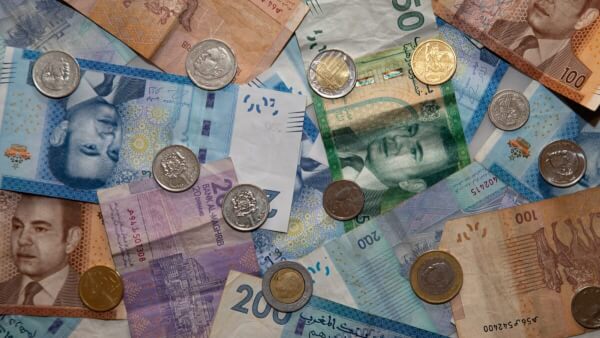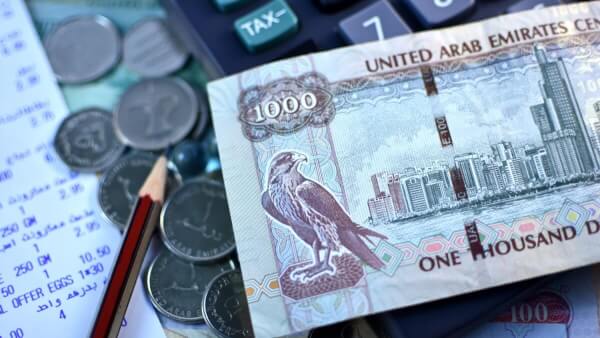Starling Bank limits: transfers, withdrawal, spending
Read our guide to Starling Bank limits on UK and international transfers, ATM withdrawals and card spending for personal customers.

Moving to Vietnam for work or study, or simply visiting friends or family for a long stay? Whichever is the case, you’re likely to need a bank account. But just how easy is it to open a bank account in Vietnam as a foreign national?
We’ll cover everything you need to know in this guide. This includes the documents you’ll need to apply for an account, and the best banks in Vietnam for foreigners.
We’ll even throw in a handy tip to help you manage your money across international borders - the Wise multi-currency account.
With this account, you can send money from the UK to Vietnam for low fees and a fair exchange rate. This could be super handy for covering those initial moving expenses. Plus when you get there, you can spend in Vietnamese dong (VND) just like a local using your Wise debit card.
But first, let’s focus on getting your Vietnamese bank account open.
You can open a bank account in Vietnam as a foreign citizen, but there are a few conditions you need to know about.
Stricter rules were introduced in 2019¹, which placed some new restrictions on foreigners opening bank accounts in Vietnam.
You now need to prove that you have permission to stay in Vietnam for longer than 12 months². So, you can no longer access bank accounts and bank services on a tourist visa. You’ll need to have a valid visa for a minimum of 1 year, along with a work permit if applicable².
We’ll cover the full list of documents you’ll need in just a moment.
But when it comes to the process of actually opening your account, you should find it reasonably straightforward.
You can book an appointment at your bank of choice, and take your documents and completed application form along on the day. You’ll provide some details, sign some forms and the bank will take care of the rest.
One important thing to note is that many accounts require a minimum initial deposit, so you’ll need to pay this in before the account can be opened.
This can vary from bank to bank. For example, at Agribank, there’s a minimum deposit of 50,000 VND (or 10 currency units for accounts opened in a foreign currency) for its payment account³.
According to the new restrictions introduced in 2019, you’ll need to be a resident of Vietnam in order to open a bank account. This is because many banks will ask for proof of residency in Vietnam for at least 12 months², along with a visa covering the same period.
In most cases, you’ll need to make an appointment at the bank and go there in person to open a bank account.
Some banks, such as Vietcombank⁴, do offer the option to apply online. However, you may not be eligible to use this service as a foreign national.
You’ll need to check with the bank, or try applying online and see how far you get. If you’re already living in Vietnam, it could be more straightforward to simply book an appointment at a local branch.
While it varies from bank to bank, here’s what documentation most of the major banks in Vietnam will require in order to open an account²:
Just before we move on to look at Vietnamese banks, a quick word on the kinds of bank accounts available in Vietnam.
Most banks offer current, deposit and savings accounts, which are suitable for everyday banking.
Unlike in the UK and other countries, many of these standard accounts can be opened in your choice of currency⁵. You can open a bank account in VND, or in GBP, USD or another major currency (depending on the bank).
The major benefit of opening an account in a foreign currency is that it should make it easier to make an international transfer. The rules in Vietnam are strict about sending VND out of the country². So if you need to send money overseas, a foreign currency account is a good alternative.
There are a number of local and international banks to choose from in Vietnam. Let’s take a look at some of the major banks, along with popular options for expats moving to Vietnam.
A state-owned bank, VietinBank is headquartered in Hanoi and has over 150 branches across 63 cities and provinces in Vietnam⁶.
It offers a choice of current and savings accounts for personal customers, along with foreign currency trading, loans and digital banking services. Its expat-friendly current accounts include the Zero Fee Payment Account. This has no account maintenance fees (if you meet a minimum balance).
Another of Vietnam’s major banks, Vietcombank was founded in 1963 and has over 600 branches nationwide⁷. It’s a popular choice with expats, as it has an English version of its website and a large network of conveniently located ATMs and branches.
Vietcombank also has a good range of current, deposit and savings accounts for personal customers. These include its standard Current Account, which offers everything you’ll need from an everyday bank account such as a debit card, cash withdrawals, bank transfers and online banking. It also offers interest on your money⁴.
Agribank is one of the leading commercial banks in the country, with a huge network of nearly 2,300 branches⁸. Handily for UK expats, it has an English version of its website.
It has a number of deposit and savings accounts for individuals, including its Payment Account. This is free to open (although there is a minimum opening deposit), with unlimited deposits and withdrawals. You can manage your account with mobile or internet banking³.
There are also lots of international banks with a presence in Vietnam. These include BNP Paribas, Citibank, Deutsche Bank and JP Morgan.
A good option for expats is HSBC, as it has an English website and a presence in both the UK and Vietnam. It offers a Current Account in a choice of currencies, along with a number of other savings, deposit and international accounts.
Finally, there are digital-only banks. Also known as mobile banks or ‘neobanks’, these are financial companies which don’t have any physical branches but offer everyday bank accounts managed online or via a smartphone app.
In Vietnam, a popular option is Timo. It was Vietnam’s first digital bank, established in 2015⁹.
Timo’s Spend Account offers simple everyday banking services managed through a mobile app, with free money transfers and bill payments, a debit card and virtual savings account¹⁰.
It’s usually free to open a bank account in Vietnam, although you might need to make a minimum opening deposit. However, you may encounter some other fees and charges. Let’s take a look.
Some banks may charge a monthly fee for maintaining the account. For example, Vietcombank charges a management fee of 2,000 VND (around £0.07 GBP)¹¹ a month for standard personal accounts.
Other banks don’t charge a monthly fee, but only if you maintain a minimum balance in your account.
For example, at HSBC, there’s a service charge of 200,000 VND (around £7 GBP) per month if your account falls below the minimum credit balance of 3,000,000 VND (around £106 GBP)¹².
Changed your mind about the account? Be careful about closing it, as some accounts have fees for early closure.
At HSBC, you’ll be charged 300,000 VND¹² (around £10.60 GBP) for closing your account within 12 months. At Vietcombank, a similar but much lower early closure fee of 20,000 VND¹¹ (around £0.70 GBP) will apply.
Before opening an account, check whether there are any charges for:
A Vietnamese bank account is certainly handy to have, especially for receiving your salary and paying your bills. But it may not be the best option for sending money internationally, especially with all the strict rules on sending Vietnamese dong out of the country.
The Wise multi-currency account is the perfect alternative for expats living in Vietnam, or anywhere else in the world.
From one powerful online account, you can send money worldwide for low transparent fees and the mid-market exchange rate. This is a fair rate you can get without the mark-up that banks tend to add on top.
You can even receive money for free in a range of major currencies, and spend in VND like a local with your own Wise debit card.
This automatically converts currency at the mid-market rate whenever you spend, for only a tiny conversion fee (or it’s free if you already have the currency in your account).
This is the ideal option for covering your day-to-day expenses, and you can use the same card in 200+ countries too.
Sound like just what you need? Open your Wise account online in just a matter of minutes.
Sources used for this article:
Sources checked on 07-Aug-2022.
*Please see terms of use and product availability for your region or visit Wise fees and pricing for the most up to date pricing and fee information.
This publication is provided for general information purposes and does not constitute legal, tax or other professional advice from Wise Payments Limited or its subsidiaries and its affiliates, and it is not intended as a substitute for obtaining advice from a financial advisor or any other professional.
We make no representations, warranties or guarantees, whether expressed or implied, that the content in the publication is accurate, complete or up to date.

Read our guide to Starling Bank limits on UK and international transfers, ATM withdrawals and card spending for personal customers.

Find out how to open a Starling Bank account online in the UK with our comprehensive guide, covering eligibility, requirements and how to get started.

A list of the top 10 banks in Morocco, including CIH Bank, Attijariwafa Bank, Bank of Africa and Al Barid Bank.

A list of the top 10 banks in Dubai, including Emirates NBD, First Abu Dhabi Bank, Mashreq Bank, RAKBANK and HSBC UAE.

Looking to open a new bank account? Read our Halifax Reward current account review and find out everything you need to know.

Read our comprehensive guide to the best USD accounts in the UK, including features, fees and everything else you need to know.